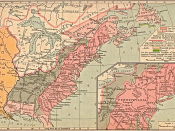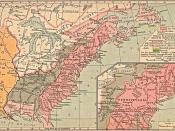In order for a Pulitzer Prize to be granted to an individual, an unbelievable and almost impossible event must occur. For some, that task takes a few years, for others, a lifetime, sometimes without success. However, some people decide not to discover a new formula, vaccine, or cure for a disease, but to create and write a book, either out of their own and personal ideas, or existing facts. Gordon S. Wood, author of the honorary book The Radicalism of the American Revolution, centered his creation on an already existing event, the American Revolution. In his famous book, which won the Pulitzer Prize for History in 1993, Wood interprets the Revolution's affect on the American colonies, leading to 1776. He uses the "cutting board" effect on the Revolution, by using the war as the main viewpoint and "cutting it down" into three smaller and more precise categories; monarchy, republicanism, and democracy.
Why did Wood write this historical text? Was he vying for a place to speak his personal thoughts or was he trying to prove a valid and historical point? Combining the information of the three categories, along with other historical evidence, Wood proves that the American Revolution changed America in a way that affects the country presently and whether or not some particular events were necessary for America's establishment.
Wood's text opens by explaining the status of the 17th Century colonial society as being "...A thousand different anomalies and inconsistencies...," (Wood, 11). An anomaly is any thing, person, or event that makes a normal situation unordinary or extravagant. Since its conception in the late 1700's, the thirteen American colonies were under the rule of a monarchial form. At that particular time, the colonies were a "royal" mess. Everyone had their own ideas, and everyone expressed their own...


